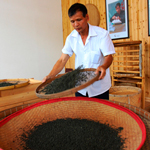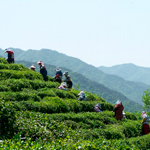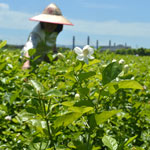Jasmine and Tea Culture System of Fuzhou City
GIAHS since 2014

The Jasmine-tea system is a main source of livelihood support to the local community as it involves diversified agriculture provisions. In this whole process production, mushrooms, jasmine tea, milk and meat are produced. In addition, farming in the tea plantations begins in February, producing tea leaves and other food.
Fuzhou is the most important city in producing jasmine tea in China, where jasmine and tea industries are a major source of income for local farmers. Tea processing enterprises also make a contribution to the local economy. Therefore, the jasmine and tea industries are crucial for local livelihoods.
Video
Stories
Heritage and innovation to face the present and build the future
As we celebrate International Tea Day 2020, four GIAHS tea plantations shared details about the unique features embedded in their systems and the successes of tea production in their area and the subsequent difficulties faced during the COVID-19 pandemic. Read more
Tea: a love that has stood the test of time
In a world of cultural differences, is there one thing that can bind everyone together? Well, we all need to eat. Drink too, in fact. Interestingly enough, the drink most often chosen around the world after water, is tea. It is loved by millions from India to England, Afghanistan to Algeria - each culture with its own tradition. Read more
News
First International Tea Day sees call for joint action to ensure sustainability of tea sector
FAO today marked International Tea Day by stressing the crucial need to ensure the sustainability of tea production - a basis for the livelihoods of millions of farmers - especially at a time when the world economy enters a recession and incomes decline as a result of the COVID-19 pandemic.




